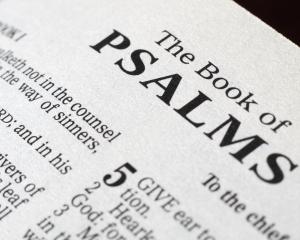A minister who’s an atheist? Words do matter, argues Ian Harris.
Eyebrows shot up when a minister visiting from Canada described herself on radio last month as "an atheist". Those of little or no religion and churchgoers alike wondered how anyone could be both at once. Is there dry water? Hot ice? How could a minister of the United Church of Canada, an amalgam of Presbyterians, Methodists and Congregationalists, be an atheist?
That’s no problem for the Rev Gretta Vosper. She doesn’t hold to the understanding of God as an all-powerful, all-knowing, all-loving and all-wise supernatural being who intervenes in the world to sway events. Hence the label "atheist".
For a minister who places great emphasis on effective communication, however, this does seem unduly puzzling. It cannot help but distance her from Christians who don’t go along with her new perspective, while doing little to persuade atheists she truly shares their outlook — she wants to remain, after all, a United Church minister.
Whether that will happen is an open question. In September a church panel probed her views and concluded she was "not suitable to continue in ordained ministry". That has been challenged. A formal hearing will follow.
Meanwhile, Ms Vosper and her Toronto congregation plan to initiate a new, overtly secular community in another part of town. It will centre on a distillation of Christian values and virtues, but will be stripped of all Christian terminology. Ms Vosper says that’s because the language of faith works to exclude people who are not already well versed in it. She hopes that identifying as an atheist will help build new-style communities for those beyond the church. Ms Vosper is not alone in moving beyond theism. Many ministers and more lay folk have done the same. But they would probably describe themselves as "non-theist" rather than "atheist", leaving the way open to conceive of God in other ways.
"Atheist" slams the door shut on that.
The distinction is crucial. For centuries the gods, then God, were central to people’s understanding of the way the physical world functions. God’s presence and power explained everything. In most religions and for atheists, that’s what "God" still means.
For many Christians, however, that theistic concept has withered on the vine, though it is still integral to worship in most churches. They live without that God (which is what the word a-theist actually means). They realise, however, that every notion of God is generated and belongs not within the hard-edged physical world, but within the world of human thought.
Any concept of God worthy of the name then becomes a supreme achievement of human creativity. English novelist Iris Murdoch summed this up neatly when she wrote: "God does not and cannot exist" (that is, as a separate, objective being).
"But what led us to conceive of God does exist and is constantly experienced and pictured."
One alternative to the theistic formula sees God as the ever-present symbol of what a person affirms as ultimate in his or her values and concerns, and of the interconnectedness of all life. There’s a risk that a symbol can be dismissed as "just" a symbol, like an emblem or trademark. But this kind of symbol is of a higher order. It signifies a presence and power. It gives meaning and direction to life. Parallels, good and bad, would include a nation’s flag, the cross, the hammer and sickle, the swastika,It will take time for a new style of God-talk to bed in. So to avoid confusion, Ms Vosper joins those who abandon God-talk altogether, and substitutes a cornucopia of abstract nouns.
Religion, however, is built on more than warm fuzzies. Religious tradition is influential because it is rooted in real people reflecting on real experience and real events, and then interpreting them in light of the knowledge and culture of their day. In a living tradition, every generation must do likewise. Jettisoning that critical link is tantamount to cutting the spine out of the body of a religion.
Paul Tillich, one of the foremost theologians of last century, once tried to do something similar. He tells how, in an address, he once set out to make himself understood by avoiding all traditional religious words like God, sin, salvation, Christ.
"After I had finished," he says, "Jewish religious philosopher Martin Buber challenged my paper, not with regard to its contents, but its language. He stated with great seriousness that certain words are not replaceable, that there are ‘Urworter’ (primary words) which no other, especially no philosophical terms, can ever supersede."
Ditto with Ms Vosper’s cascade of abstract nouns.
- Ian Harris is a journalist and commentator.












